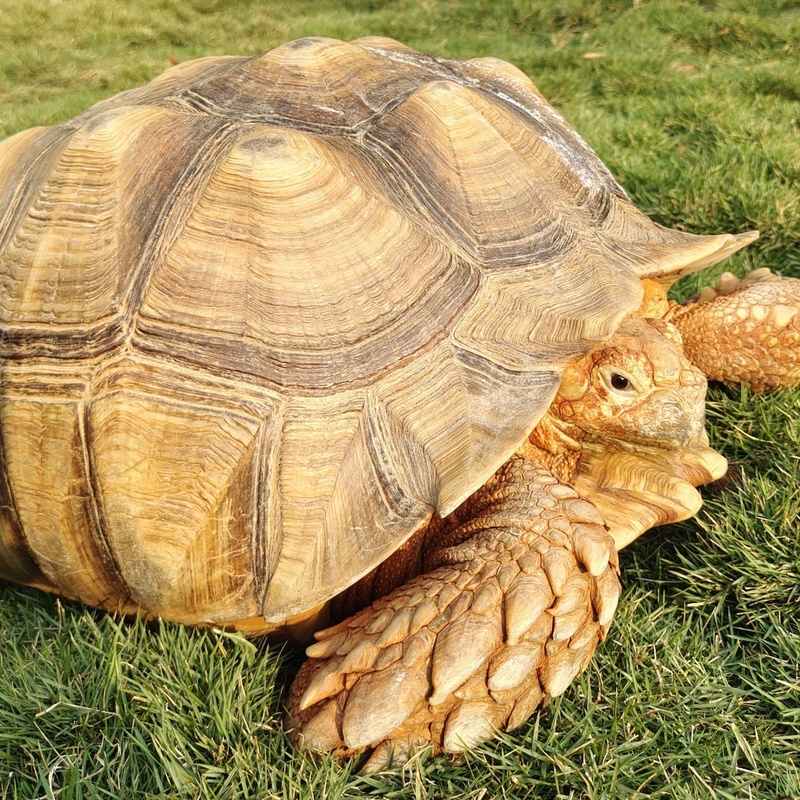Search
Inhibition of Microbial Biofilm by the Crude Extracts of Marine Sponge, Stylissa masa
DOI: 10.17160/josha.10.4.926
Though a number of studies in relation to fouling and antifouling have been carried out throughout the world, few studies on antifouling compounds from marine natural sources have been carried out to address fouling in Andaman and Nicobar Islands (Patro et al., 2009). There is a real need for the continuous development of new non-toxic antifouling formulations. An ideal antifouling formulation would have the following properties: permit at least five years of biofouling life cycle control, durable and resistant to damage, repairable, low maintenance, easy to apply, hydraulically smooth, compatible with existing anticorrosion coating, cost-effective, non-toxic to non-target species, and, effective at port and sea. An interesting and promising line of research is inspired by biomimetic solutions.
Michael Nyman's Bricolage: A Unique Approach to Composition in the 20th Century
DOI: 10.17160/josha.10.6.925
The article presents Michael Nyman's work which has been identified as close to bricolage. He is a famous composer, and his compositions are widely performed, earning his work to be compared to that of Philip Glass, an American composer. Nyman ensured that his work was original and unique from the contemporary composers. His work looks original compared to the works of British composers of the second half of the 20th century. Nyman's bricolage is characterised by a unique composition strategy, including the analysis of the original source, the selection of material, and its recombination based on a new compositional logic. His style is based on processing someone's materials through disassembly and reassembly, which is vital for the production process. For instance, the transformation of 'I'm not angry' is different, and the composer heavily relied on the original source's potential.
Analysis of Extracellular Vesicles (EVs) Derived from CAR-T Cells
DOI: 10.17160/josha.10.4.924
Extracellular vesicles (EVs) conform a heterogeneous group of lipid bilayer membrane particles naturally released by cells. They vary in size, surface composition, mechanism of formation, biochemical content, and function within the human body. EVs are classified in 3 groups, depending on their size and biogenesis: exosomes (originated by the endolysosomal system, measuring 60-150nm in diameter), microvesicles (direct budding from the plasma membrane, measure 100 – 1000 nm size) and apoptotic bodies (released by dying cells, size >1μm). A very important feature of the EVs is the delivery of information by horizontal transfer between the origin cell and the recipient one, evidence suggests that the uptake of EVs by recipients’ cells can induce changes in their own characteristics and function. CAR T-cells are genetically modified T-cells that express on their surface a Chimeric Antigen T-cell Receptor (CAR) specific for a unique antigen expressed in the surface of tumor cells.
JOSHA’s Critical Review of “Tracking Success in a Fertile Start-up Ecosystem” by Nature
DOI: 10.17160/josha.10.5.918
The article "Tracking Success in a Fertile Start-up Ecosystem" explores the vibrant start-up culture in Germany, focusing on two successful start-ups: Clue, a Berlin-based period and ovulation tracker app, and Morpheus Space, a TU Dresden spin-off that has developed an electronic propulsion system for CubeSats. The article discusses the funding opportunities available to German startups, such as the EXIST programme, and notes the country's low percentage of female founders. Overall, the article provides insight into the promising start-up landscape in Germany, highlighting some of the successes and opportunities available. The article was first published in ‘Nature’ on November 26, 2020 (https://media.nature.com/original/magazine-assets/d41586-020-03319-9/d41586-020-03319-9.pdf).
Editorial Volume 10, Issue 3
DOI: 10.17160/josha.10.3.917
Dear josha-journal readers, Before the summer really starts in Europe, josha-journal deals with a variety of topics, especially, as a warning, with a serious issue concerning German history. George M. Weisz, in his excellent study, elaborates the similarities between the genocide of Herero and Nama in Namibia and the Nazi genocide of European Jews and other groups. This should always be a warning not to forget history and to draw a lesson from it for the present and the future. We at josha-journal are committed to community and international exchange. Wherever you stay in the world and read the journal: Stay tuned to us.
Modelling Spatial Scale and Heterogeneity in Rotterdam Housing Market Using Multiscale Geographically Weighted Regression
DOI: 10.17160/josha.10.4.915
This study investigates the spatial heterogeneity of the Rotterdam housing market, as well as the spatial scale at which the processes that explain housing prices operate. I use data on 3632 residential properties that were sold in Rotterdam in 2018 provided by the NVM. Using a recently (2017) developed technique called Multiscale Geographically Weighted Regression (MGWR), I show that certain factors explaining residential housing prices operate on different spatial scales, indicating the existence of relatively local and more global effects. Lot size and the state of maintenance of the house exterior seem to operate on a local scale, whereas the degree of isolation and number of rooms appear to be global. Comparison of the MGWR model with a regular GWR with fixed bandwidths and a global hedonic model with location fixed effects, show that the MGWR best fits the data, i.e. a model that allows the bandwidths to vary for each parameter outperforms the models that do not allow this.
JOSHA’s Critical Review of “Crypto Art: A New Era in Art vs. Adventure Challenges” by Taras Habrel
DOI: 10.17160/josha.10.4.911
This article explores crypto art, a new phenomenon in the art world, and compares its challenges and advantages with the traditional art market. It argues that NFTs have brought legitimacy to digital art and offer a transparent and fair alternative for artists seeking financial independence. While acknowledging potential environmental impacts, the article concludes by outlining possible scenarios for the future development of crypto art worldwide. However, it also highlights the significant legal issues that must be addressed for a fair and sustainable market for artists and collectors.
JOSHA’s Critical Review of “High Hopes for ‘Deep Medicine’? AI, Economics, and the Future of Care” by Robert Sparrow and Joshua Hatherley
DOI: 10.17160/josha.10.6.910
"High Hopes for 'Deep Medicine'? AI, Economics, and the Future of Care" by Sparrow and Hatherley critically examines the potential impact of AI on healthcare. The essay questions the optimistic view that AI will enhance the doctor-patient relationship, and identifies economic and institutional factors that may hinder its realisation. Concerns are raised about the erosion of the therapeutic relationship, increased administrative burden, reduced time for patient interaction, and diminished trust in doctors. While acknowledging the benefits of AI in diagnosis, the authors call for a more balanced approach, suggesting specific recommendations and exploring successful examples of AI integration to prioritise patient-centred care and protect the doctor-patient relationship.
Care of Sulcata Tortoises (Centrochelys sulcata) in Captivity in India
DOI: 10.17160/josha.10.3.909
The sulcata tortoise is a popular reptile species native to Africa that has seen an increase in popularity as a pet in India in recent years. Proper captive care and husbandry are essential for the well-being and health of sulcata tortoises, and it is important to consider the specific needs and requirements of these animals in Indian conditions. This article provides a comprehensive overview of the captive care and husbandry of sulcata tortoises in Indian conditions, including considerations for different weather conditions and seasons, common health problems and their prevention measures, and other relevant topics. The article also discusses the importance of environmental enrichment, and the need to provide a stimulating and varied environment that meets the physical, social, and behavioural needs of the tortoises.
GENOCIDE: From the Second Empire's Namibia, to the Third Reich’s Birkenau
DOI: 10.17160/josha.10.3.908
The concept of the Empire (Reich) of the German Nations was first established by Otto I in the year 962. It was revived from the defunct Holy Roman Medieval one at a post war conference in Versailles, in 1871. This revival became a reality by the unification of the dispersed German states, with Otto v. Bismarck named as chancellor and William I, as emperor.(1871-88). It was however, in 1884 at a meeting in Berlin, that the European states divided the potential African colonies. Consequently, Germany was granted a colony on the South/Western African coast, in today’s Namibia, the land of Hehero and Nama. Starting as an economic enterprise (tobacco, metals, diamonds, and cattle), this soon became a racially driven Genocide, which included medical experiments. The similarities of the Second Reich with the coming Third Reich were described by many historians.









